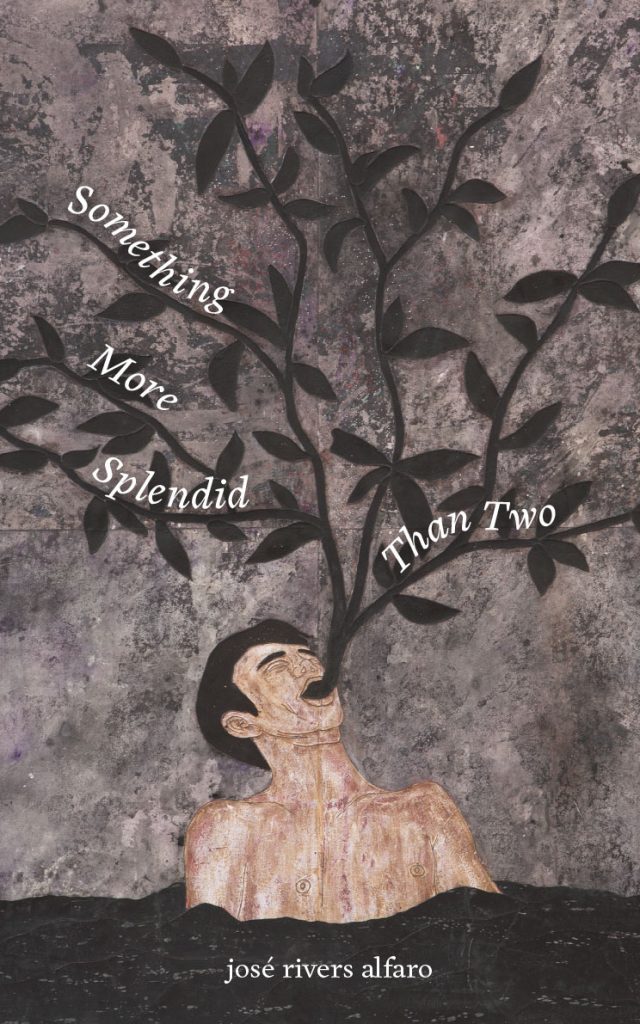A brilliant blend of lyricism and rigorous critique, Something More Splendid Than Two seamlessly braids the story of folk hero turned outlaw, Joaquín Murrieta, with a family history’s complicated relationship to language, colonialism, and patriarchy. I truly marveled at alfaro’s uncompromising search for the origin of a wound that has not/cannot heal without a radical, honest, and meticulous reckoning of the failed solidarities between different marginalized people, between the author and their past. The triumph of this story is its testament to the beauty and pain of survival, the lengths we must take to endure.
~ Marcelo Hernandez Castillo, author of Children of the Land
In the spirit of Audre Lorde’s Zami and Gloria Anazaldúa’s Borderlands/La Frontera, Something More Splendid Than Two exquisitely weaves myth, poetry, historical research, family lore, personal reflection, and literary analysis to create a hybrid text that inspires, devastates, and moves. Drawing upon the mythology of 19th-century outlaw and Chicanx folk hero Joaquín Murrieta, alfaro illuminates in sumptuous language the devastating effects of colonized masculinity, especially for those living across and between the US–Mexico border. Particularly affecting is alfaro’s ability to trace the ways in which intergenerational trauma and failed opportunities for solidarity shape but never determine his own life as a queer Chicano writer, teacher, and son. Combining rigorous scholarship with lyrical self-reflection, Something More Splendid Than Two dismantles the binaries that structure colonial violence and invites us to choreograph new possibilities for healing and kinship across time and space.
~ Sarita Cannon, author of Black Native Autobiographical Acts: Navigating the Minefields of Authenticity
josé rivers alfaro’s Something More Splendid Than Two invites readers into multiple spaces, and multiple experiences, of critical intimacy, each of them charged with vulnerability, and conflict, and transport, and pleasure. Readers, however, will have to decide for themselves what counts as most, and what counts as least, intimate, if making that decision is even possible: these trans-formal, polylingual written performances, often at once lyrical, analytical, expository, and narrative, manifest experiences of imaginative, intellectual contact suggesting how the practice of research can be as personal (and, therefore, as oppressive as it is empowering, as wounding as it is enlightening) as the practice of kinship, or the practice of reading, or the practice of culture. alfaro’s work rereads multiple pasts to imagine multiple futures heretofore impossible to conjure, and now possible to make: Chicanx, Latinx, Indigenous, and Queer literatures will be changed, for the better, thanks to what we find here.
~ Ricardo L. Ortiz, author of Latinx Literature Now: Between Evanescence and Event



I can’t wait for this release!